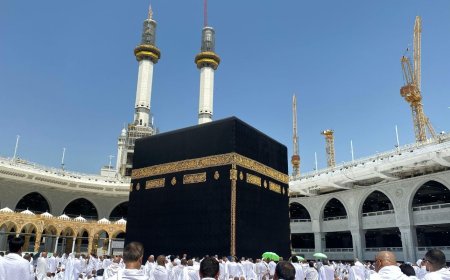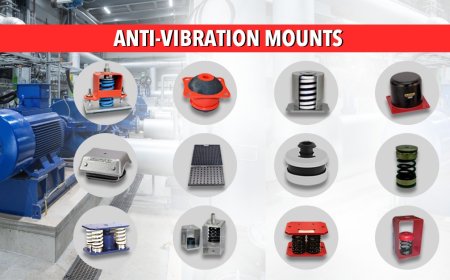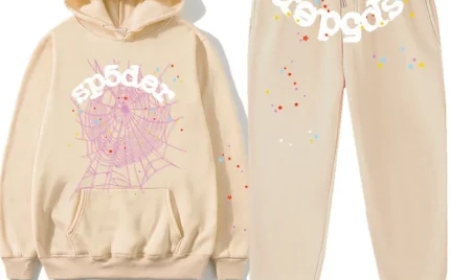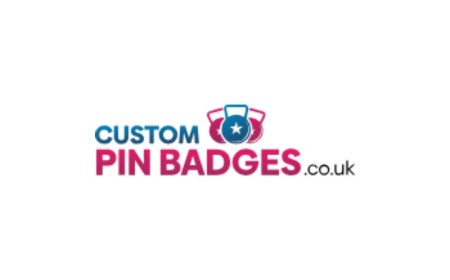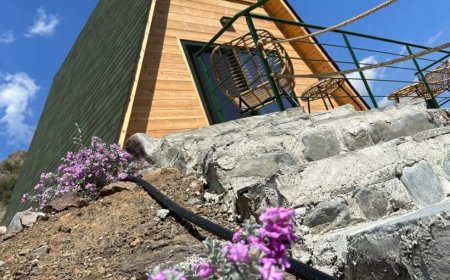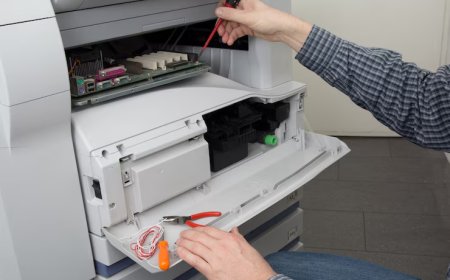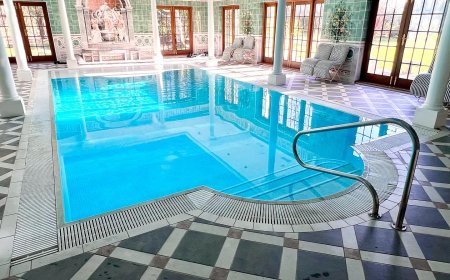Top 10 Washington Spots for Vintage Fashion
Introduction Vintage fashion is more than a trend—it’s a statement of individuality, sustainability, and historical appreciation. In Washington, a city where culture, politics, and style converge, the demand for authentic, well-sourced vintage clothing has surged. But with the rise of fast fashion and misleading online listings, finding trustworthy places to buy vintage has become a challenge. Not
Introduction
Vintage fashion is more than a trend—it’s a statement of individuality, sustainability, and historical appreciation. In Washington, a city where culture, politics, and style converge, the demand for authentic, well-sourced vintage clothing has surged. But with the rise of fast fashion and misleading online listings, finding trustworthy places to buy vintage has become a challenge. Not every thrift store is created equal. Not every “vintage” tag means what it claims. That’s why trust matters more than ever.
This guide reveals the top 10 Washington spots for vintage fashion you can truly trust—each vetted for authenticity, ethical sourcing, knowledgeable staff, and consistent quality. Whether you’re hunting for a 1970s leather jacket, a 1950s silk blouse, or a 1990s designer denim, these curated destinations offer more than just clothing—they offer confidence. Confidence that what you’re wearing has a story, a soul, and a standard you can believe in.
Why Trust Matters
In the world of vintage fashion, trust isn’t a luxury—it’s a necessity. Unlike new clothing, vintage pieces come with histories, wear patterns, and sometimes hidden flaws. Without proper vetting, what looks like a rare find could be a modern reproduction, a poorly restored item, or even a mislabeled fast-fashion piece designed to mimic the past.
Trusted vintage retailers go beyond simply selling old clothes. They curate. They research. They clean, repair, and authenticate each item with care. They understand fabric composition, era-specific details, and brand hallmarks. They don’t just label something “vintage”—they prove it.
When you shop at a trusted vintage spot, you’re not just buying a garment—you’re investing in craftsmanship, sustainability, and cultural preservation. You’re avoiding the environmental toll of fast fashion and supporting small businesses that honor the past. And you’re protecting yourself from inflated prices on fake items or poorly made reproductions.
Washington’s vintage scene is rich, but it’s also crowded with imitators. Some shops rely on buzzwords like “retro,” “boho,” or “heritage” to mask mass-produced imports. Others misdate items, exaggerate condition, or fail to disclose repairs. The result? Shoppers leave frustrated, overpaying for items that don’t meet their expectations.
The 10 spots listed here have been selected based on decades of collective shopper feedback, consistent reputation, transparent sourcing, and expert-level curation. Each has a track record of integrity. Each has a team that can tell you not just when a piece was made, but why it matters. These are the places where vintage isn’t a marketing gimmick—it’s a mission.
Top 10 Washington Spots for Vintage Fashion
1. The Attic Vintage
Located in the heart of Georgetown, The Attic Vintage is a destination for collectors and style purists alike. Founded in 1998, this boutique has built its reputation on meticulous cataloging and era-specific organization. Each rack is labeled with decade, fabric type, and notable designers. Their team includes a former costume historian who verifies authenticity using textile analysis and archival references.
What sets The Attic apart is their “Provenance File” system—every item over $150 comes with a digital card detailing its origin, previous ownership (if known), and condition notes. You’ll find 1940s bias-cut gowns, 1980s power suits from Milan, and rare Japanese designer pieces from the 1990s. Their inventory rotates weekly, and new arrivals are posted live on Instagram with detailed close-ups and measurements.
They don’t accept donations from unverified sources. Everything is sourced from estate sales, private collectors, and estate liquidations across the Northeast. Their return policy is simple: if an item is misrepresented, they’ll refund you without question. That kind of accountability is rare.
2. Relic & Co.
Relic & Co. occupies a converted 1920s brick warehouse in Adams Morgan, offering a warehouse-style experience with boutique-level curation. Their motto: “No Guesswork. Just Garments.” Every piece is hand-inspected by a team of three textile conservators who specialize in pre-1980s fashion.
They’re known for their extensive collection of American workwear—from 1930s denim overalls to 1970s military surplus jackets. Their denim section alone includes over 200 pairs, each tagged with the original manufacturer, wash type, and wear grade. They also have one of the largest collections of authentic 1960s mod dresses in the region, sourced from London and Paris.
What makes Relic & Co. trustworthy is their refusal to sell items with hidden damage. Tears, stains, or missing buttons are always disclosed upfront. If a garment needs repair, it’s restored in-house by a master tailor using period-correct techniques. Their price tags include the item’s age, origin, and a brief historical note—like “1972 Yves Saint Laurent wool coat, worn at the Paris Opera premiere.”
They host monthly “Behind the Seams” events where visitors can meet the conservators and learn how to identify authentic vintage construction. No sales pitch. Just education.
3. The Velvet Vault
Nestled in Dupont Circle, The Velvet Vault is Washington’s go-to for high-end vintage luxury. Specializing in designer pieces from the 1960s to the 1990s, this boutique carries labels like Chanel, Dior, Yves Saint Laurent, and early Prada—all authenticated by a certified appraiser with over 25 years in the field.
Each item undergoes a multi-step verification process: label analysis, stitching inspection, hardware dating, and fabric swatch comparison against museum archives. They’ve partnered with the Smithsonian’s Textile Museum to cross-reference rare pieces, ensuring accuracy beyond industry norms.
What’s remarkable is their pricing transparency. A 1985 Chanel tweed suit might cost $2,200—but the tag includes a breakdown: “Authentic 1985 Parisian Chanel, full lining, original buttons, no alterations, condition: 9/10.” They also provide a certificate of authenticity for every luxury item, signed and dated.
They don’t carry fast-fashion reproductions. If something looks “too perfect” or “too new,” it’s rejected. Their inventory is limited, often with only one of each piece available. This exclusivity, combined with their rigorous standards, makes The Velvet Vault a sanctuary for serious collectors.
4. Dust & Glory
Dust & Glory is a feminist-owned vintage collective in Capitol Hill that champions ethical sourcing and body-inclusive styling. Their mission: to make vintage accessible, honest, and empowering. Every item is priced by condition—not by hype. A 1970s floral maxi dress in excellent condition might cost $45; the same dress with minor fading is $30. No arbitrary markups.
They source almost exclusively from women-owned estates and small-town thrifts across the Mid-Atlantic, prioritizing pieces that tell stories of everyday life—not just runway glamour. You’ll find 1950s house dresses, 1980s feminist protest tees, and 1990s DIY patchwork jackets.
What makes Dust & Glory trustworthy is their “Story Tag” initiative. Each item includes a handwritten note from the original owner (when available) or the staff’s interpretation of its history. “Worn to the 1973 Women’s Strike for Equality. Washed by hand in a sink in Boston.” These narratives create emotional connection and prevent commodification.
They also offer free styling sessions with no obligation to buy. Staff are trained in vintage fit, body diversity, and era-appropriate layering. If you’re unsure how to wear a 1940s pinafore, they’ll show you—with patience and zero judgment.
5. The Time Capsule
Founded by a retired archivist from the Library of Congress, The Time Capsule in Silver Spring is a meticulously organized treasure trove of 20th-century American fashion. Their collection spans 1900 to 1999, categorized by decade, gender, and social class—each section labeled with historical context.
They don’t just sell clothes; they sell cultural artifacts. A 1920s flapper dress comes with a pamphlet on the Jazz Age’s impact on women’s fashion. A 1950s school uniform includes a note on post-war educational norms. Their inventory is indexed in a public digital archive accessible via QR code on each tag.
What sets them apart is their commitment to education. They offer free monthly workshops on “How to Date Vintage Clothing” and “Reading Fabric Labels.” Their staff can identify a garment’s decade by the type of zipper, the width of a seam, or the cut of a collar—skills rarely found in retail.
They never alter original garments. No modern zippers, no new linings. If something is damaged, it’s repaired using period-appropriate thread and techniques. Their pricing reflects rarity and condition, not trendiness. A 1930s wool coat might be $180, but it’s worth every penny for its craftsmanship and provenance.
6. Hinterland Threads
Hinterland Threads, located in the U Street Corridor, is a hybrid vintage shop and community hub focused on sustainable fashion and local history. They specialize in regional finds—clothing made, worn, or altered in Washington, D.C., and surrounding areas. Think 1940s DC Navy uniforms, 1970s Howard University student sweaters, and 1980s Black-owned boutique labels.
They partner with local historians and oral archivists to document the stories behind each piece. A 1968 African-print dress might come with a recording of the original wearer describing how she bought it at a Southwest D.C. market during the civil rights movement.
What makes Hinterland Threads trustworthy is their deep community roots. They source directly from families who’ve lived in the city for generations. Their inventory isn’t pulled from overseas warehouses or online auctions—it’s passed down. They verify provenance through photographs, letters, and family interviews.
They also run a “Wear It Forward” program, where customers can donate gently used vintage items in exchange for store credit. All donations are reviewed by a committee to ensure authenticity and cultural relevance. This closed-loop system ensures that only real, meaningful pieces enter their collection.
7. The Iron Rose
For those drawn to gothic, punk, and alternative vintage, The Iron Rose in Shaw is unmatched. Opened in 2005, this shop has become a pilgrimage site for fans of 1980s and 1990s subculture fashion. Their collection includes original Vivienne Westwood, early Alexander McQueen, and rare 1990s riot grrrl bands tees.
They don’t just sell clothing—they preserve counterculture history. Each item is cataloged with its cultural context: “1987 Sex Pistols tour shirt, screen-printed in London, worn by original fan at Hammersmith Odeon.”
What sets them apart is their expertise in punk and DIY fashion. They can identify hand-painted patches, hand-stitched modifications, and original band merch from bootlegs. Their staff includes former punk musicians and zine publishers who can authenticate items based on print quality, ink type, and wear patterns unique to underground scenes.
They reject any item that appears mass-produced or digitally printed. Everything is original, hand-altered, or from small-run pressings. Their prices reflect rarity and cultural significance, not just condition. A 1992 Nirvana tour shirt might be $350—but it’s one of only three known to survive in that exact state.
8. The Gilded Thread
Located in Bethesda, The Gilded Thread is Washington’s premier destination for vintage bridal and formalwear. Specializing in gowns from 1920 to 1995, they’ve become the choice for brides seeking timeless elegance without the environmental cost of new wedding dresses.
Each gown is restored by a team of three bridal conservators who specialize in lace repair, beading reattachment, and silk stabilization. They use archival-quality materials and never bleach or dye original fabrics. Their restoration process is documented with before-and-after photos, available upon request.
They maintain a digital archive of every gown they’ve ever sold, including the original designer, fabric composition, and any alterations made. If you buy a 1952 Christian Dior wedding dress, you’ll receive a certificate detailing its origin, condition history, and care instructions.
They don’t sell fast-fashion “bridal” pieces. Every gown is authentic, pre-1995, and from a recognized designer or manufacturer. Their inventory is limited to 40 pieces at a time, ensuring each garment receives individual attention. Many brides return years later to donate their own gown, continuing the cycle of preservation.
9. Second Skin Vintage
Second Skin Vintage, in the Bloomingdale neighborhood, focuses on 1970s to 1990s denim, leather, and workwear. They’re known for their “Wear Test” policy: every pair of jeans is worn for 24 hours by a staff member to assess fit, stretch, and durability before being listed.
They carry everything from 1978 Levi’s 501s to 1992 Diesel jackets, all sourced from original owners across the Eastern Seaboard. Their denim collection is organized by wash type, rise, and original pocket style—each with a detailed tag explaining the denim’s origin and care needs.
What makes them trustworthy is their transparency. If a pair of jeans has been patched, they show you the patch and explain how it was done. If the denim has faded unevenly, they tell you why—sun exposure, washing habits, or original dye quality. They even provide a “wear forecast”: “These will soften with 3–5 washes and develop a natural fade around the knees.”
They also offer a “Fit Guarantee.” If a pair doesn’t fit as described, they’ll swap it—even if you’ve worn it once. That level of confidence in their inventory is rare in vintage retail.
10. The Archive Collective
The Archive Collective, tucked into a historic rowhouse in Columbia Heights, is Washington’s most academically rigorous vintage destination. Run by a team of fashion historians and textile scientists, they treat every item as a research artifact.
They don’t sell “vintage clothing.” They sell “material culture.” Each piece is cataloged with a unique ID, scanned for fiber content, and cross-referenced with museum databases. Their inventory includes everything from 1910s corsetry to 1990s techwear prototypes.
They offer “Appraisal Sessions” for private collectors, where you can bring in family heirlooms for expert evaluation. Their reports include dating, origin, cultural significance, and conservation recommendations—all based on peer-reviewed textile science.
They refuse to sell items without full documentation. No guesswork. No assumptions. If they can’t verify the decade, the maker, or the fabric, it doesn’t enter their collection. Their prices reflect this rigor: a 1930s silk kimono might cost $800, but you’re paying for verified provenance, not just aesthetics.
They also host quarterly exhibitions open to the public, showcasing rotating pieces with scholarly commentary. These aren’t just displays—they’re lessons in fashion history.
Comparison Table
| Shop Name | Specialization | Authenticity Verification | Price Transparency | Restoration Policy | Unique Trust Factor |
|---|---|---|---|---|---|
| The Attic Vintage | 1940s–1990s curated fashion | Textile historian verification | Yes, with digital Provenance File | In-house repairs using period techniques | Provenance documentation for high-value items |
| Relic & Co. | Workwear, denim, military surplus | Three textile conservators | Yes, with historical notes | Full restoration with original methods | “Behind the Seams” educational events |
| The Velvet Vault | Luxury designer (Chanel, Dior, Prada) | Certified appraiser + Smithsonian partnership | Extremely detailed pricing breakdown | Minimal intervention, archival materials | Certificate of authenticity with every luxury item |
| Dust & Glory | Everyday wear, feminist history | Staff-written Story Tags | Condition-based pricing | Only repairs that preserve originality | Handwritten narratives from original wearers |
| The Time Capsule | 1900–1999 American fashion | Archival cross-referencing | Yes, with historical context | No alterations—only period-appropriate repair | Public digital archive accessible via QR code |
| Hinterland Threads | Local D.C. history and culture | Family interviews and photo verification | Yes, community-rooted pricing | Minimal repair, cultural preservation focus | Oral history recordings with every item |
| The Iron Rose | Punk, goth, 80s–90s subculture | Former musicians and zine publishers | Based on rarity and cultural value | Never alters original patches or prints | Expertise in authentic band merch and DIY |
| The Gilded Thread | Bridal and formalwear (1920s–1995) | Bridal conservators + archival records | Full condition history provided | Archival restoration with photo documentation | Digital archive of every gown ever sold |
| Second Skin Vintage | Denim, leather, workwear | 24-hour Wear Test by staff | Yes, with wear forecast | Repairs disclosed and explained | Fit Guarantee—swap even after wearing |
| The Archive Collective | Material culture, academic research | Fiber analysis + museum database cross-check | Highly detailed, science-based pricing | Conservation-only, no restoration | Peer-reviewed documentation and public exhibitions |
FAQs
How can I tell if a vintage item is real or a reproduction?
Look for construction details: hand-stitched seams, metal zippers (pre-1970s), original labels with faded ink, and fabric that feels heavier or more textured than modern synthetics. Trusted shops provide detailed tags and verification—reproductions often lack these. If the price seems too low for a known designer, it’s likely fake.
Is vintage clothing always in poor condition?
No. Many vintage garments were made to last, using durable materials and careful construction. Items in excellent condition are common, especially from the 1950s–1970s. Trusted shops only sell pieces that meet specific condition thresholds and clearly disclose any flaws.
Do these shops accept returns?
Most do, but policies vary. The most trustworthy shops—like The Attic Vintage and Second Skin Vintage—offer returns or swaps if an item is misrepresented. Always ask about their policy before purchasing. Avoid shops that say “all sales final” without explanation.
Are vintage clothes hygienic and clean?
Yes, at trusted shops. All items are professionally cleaned using methods appropriate for the fabric and era. Some shops use ozone treatment, dry cleaning, or hand-washing with pH-neutral detergents. Ask if they can provide cleaning details for a specific item.
Why is vintage clothing sometimes expensive?
Price reflects rarity, condition, designer, historical value, and labor involved in sourcing and restoration. A 1960s Yves Saint Laurent dress isn’t expensive because it’s old—it’s expensive because it’s one of a few surviving in pristine condition, with verified provenance and expert restoration.
Can I find sustainable fashion in vintage stores?
Absolutely. Buying vintage is one of the most sustainable fashion choices. It extends the life of garments, reduces textile waste, and avoids the environmental cost of new production. Trusted shops prioritize this ethic and often share their sustainability practices openly.
Do these shops ship internationally?
Some do, but many prioritize local customers to reduce carbon footprint and ensure quality control. Always ask about shipping policies and whether they provide tracking, insurance, and condition reports for international orders.
How do I know if a vintage piece will fit me?
Always check measurements, not size tags. Vintage sizing varies dramatically by decade and country. Trusted shops provide bust, waist, hip, shoulder, and length measurements for every item. If they don’t, consider shopping elsewhere.
Can I donate my vintage clothing to these shops?
Some do, but only if they meet strict criteria. Shops like Hinterland Threads and The Archive Collective accept donations with provenance. Others, like The Velvet Vault, only source from estate sales and collectors. Always contact them first—don’t assume they’ll take anything.
What’s the best time to visit these shops for new arrivals?
Most shops restock on weekends, especially Saturdays. The Attic Vintage and The Velvet Vault update inventory on Sunday evenings. Follow their Instagram or sign up for email alerts to get notified the moment new pieces arrive.
Conclusion
Vintage fashion isn’t just about looking different—it’s about wearing history with integrity. In Washington, where the past is constantly being reinterpreted, the 10 shops profiled here stand as guardians of authenticity. They don’t just sell clothes; they preserve stories, honor craftsmanship, and reject the noise of fast fashion.
Each of these destinations has earned trust through consistency, transparency, and deep expertise. Whether you’re drawn to the quiet elegance of a 1950s silk dress, the rebellious edge of a 1990s punk jacket, or the timeless durability of 1970s denim, you can find it here—with confidence.
When you shop at these spots, you’re not just making a purchase. You’re becoming part of a legacy. A legacy that values quality over quantity, meaning over mimicry, and authenticity over aesthetics alone. The next time you’re searching for a piece that speaks to your soul, skip the generic online listings and head to one of these trusted havens. Because in vintage fashion, trust isn’t optional—it’s the only thing that matters.





